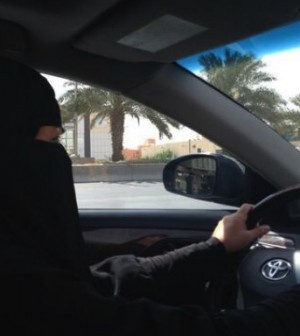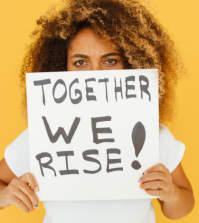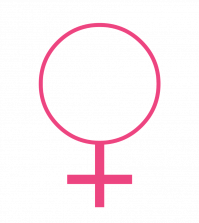- Finding Unshakable Power in a World That Wants to Pull Us ApartPosted 6 months ago
- What could a Donald Trump presidency mean for abortion rights?Posted 6 months ago
- Financial Empowerment: The Game-Changer for Women in Relationships and BeyondPosted 7 months ago
- Mental Health and Wellbeing Tips During and After PregnancyPosted 7 months ago
- Fall Renewal: Step outside your Comfort Zone & Experience Vibrant ChangePosted 7 months ago
- Women Entrepreneurs Need Support SystemsPosted 7 months ago
Support Saudi Women in the Fight to Drive

October 26th marked a big day in Saudi Arabia for women.
Across the country, women were going against their nation’s de facto ban on women driving—by getting behind the steering wheel.
As the UN Special Rapporteur on violence against women noted in 2009, Saudi Arabia currently “severely limits women’s autonomy, freedom of movement and the exercise of their legal capacity” as well as “decision-making in family matters, education and employment.”
The guardian reported:
A report on sabq.org, a Saudi news website, late on Saturday said six women had been stopped for driving by Riyadh police.
In Jeddah, Samia el-Moslimany, a half-Egyptian half-American woman married to a Saudi for 27 years, said she had been briefly held and made to sign a pledge that she would not drive again.
“I drove around the neighbourhood in Jeddah,” she said.
When she drove in the kingdom’s second city earlier in the evening, several cars followed with young men waving at her. Minutes after she relinquished the wheel to her driver, police surrounded her car and took her into detention, she said.
Saudi Arabia, the birthplace of Islam and a US ally, is an absolute monarchy that forbids political protests. It is the only country to bar women from driving. It also forbids them from travelling abroad, opening a bank account or working without permission from a male relative.
Winning the ability to drive is a highly visible step for Saudi women in claiming the rights they deserve.
Please help this cause.
All you have to do is go to this website: http://org.salsalabs.com/o/1400/p/dia/action/public/?action_KEY=7050
Once here, put in your information including email and the organization will send letters to Navi Pillay—the United Nations High Commissioner for Human Rights, Ambassador James B. Smith—the US Ambassador to Saudi Arabia, and Ambassador Adel A Al-Jubeir of Saudi Embassy on your behalf.
All women deserve the right to be free.
Driving is just one aspect of that freedom.
Photo: Eman Al Nafjan/Twitter






